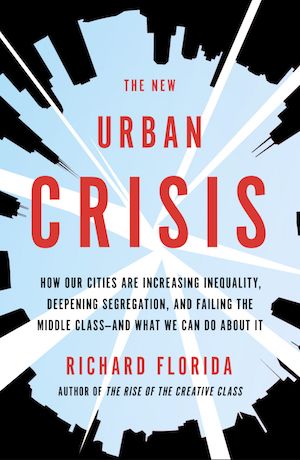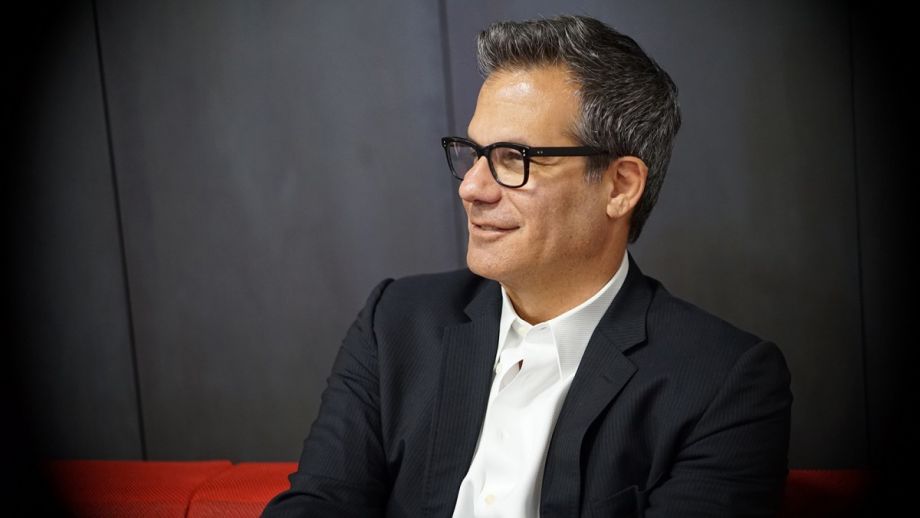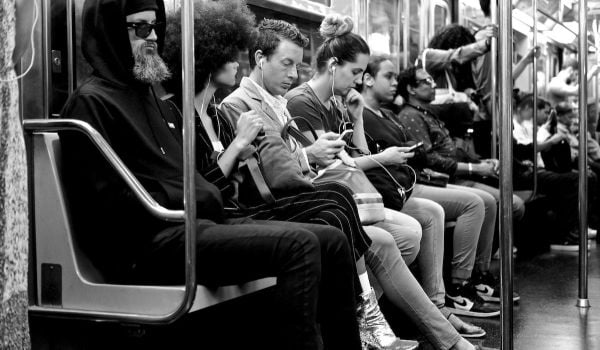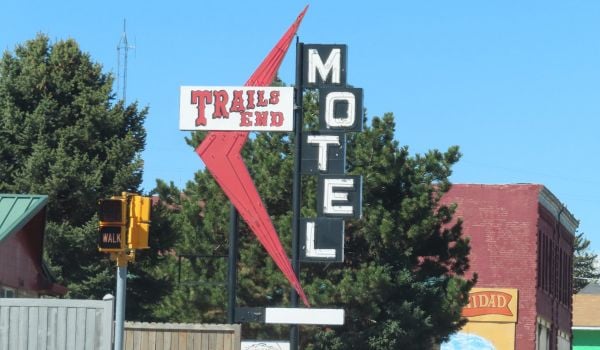Urbanist researcher and writer Richard Florida’s new book, “The New Urban Crisis,” hits shelves Tuesday, about 15 years after the publication of his “The Rise of the Creative Class.” I talked to Florida about criticism of that older work, what effect he thinks President Donald Trump might have on America’s cities, who influences him and more.
At the beginning of your new book, you write about the divide between urban optimists and urban pessimists and how your optimism has been tempered over the last few years, given the rising tide of inequality in cities. If Richard Florida is no longer an optimist, are we all doomed?
I think I’m somewhere in between. My optimism has been tempered and I’ve become more of a realist. I am worried about the election of Trump, Brexit, the rise of populism. I thought this horrific sexism, racism, homophobia and xenophobia were gone — not gone, but underneath our society and they were being overcome. To see the women in my class in Toronto — Canadian women — crying, because this sexist, racist person won an election of the most affluent country on Earth — you can’t not be pessimistic. [Editor’s note: Florida’s a professor at the University of Toronto.]
But I also think the long sweep of history is on our side. I say this at the end of the book: There have been dark ages before for cities. In the long sweep of history I’m optimistic, but I don’t think we can let this go. The market won’t solve this problem on its own. We’re going to need public policies and institutional frameworks that create equity, a level playing field, the opportunity for a middle-class job and economic mobility. We can do it.
You advocate for an “inclusive urbanism” in your book. When you say that phrase, is there an example of a place or program that comes to mind as living up to this ideal?
No. First of all, this is where I really learned a lot. The urban optimists have a point that cities are very propulsive and innovative. The pessimists have a point that they’re very divided. I think the idea of inclusive urbanism comes from me trying to juxtapose those two things. But no, I think there are places that have elements of it. No place does it all. If you look at [Eric] Garcetti in Los Angeles, he’s focused on a livable minimum wage. If you look at [Bill] de Blasio, he’s focused on affordable housing. If you look at Anne Hidalgo in Paris, Sadiq Khan in London. What Bill Peduto is trying to do to rebuild Pittsburgh’s economy in an inclusive way. There’s a set of best practices that you can begin to put together for a framework of inclusive development or inclusive prosperity, but nobody has done it.
I also think, to be quite honest, in the absence of a federal strategy, we’re going to have to work with the private sector on this, too. It’s not just going to be about a federal policy, because we’re not going to have one. Maybe Justin Trudeau will have one in Canada, but it’s not going to happen in the States. We’ll have to think about other allies and leverage points in this initiative.
Can you share a conversation in the last year that you had with a person from a marginalized community that particularly influenced this new book or connects well to what you cover in it?
It was actually a Next City article that had a bigger effect on me than any single conversation. It was by Alexis Stephens about my report on divided cities, the one with the class divide maps for a bunch of metros. In it, she basically said my class divide maps overlap, overlay and reinforce long-standing racial divides, singling out Chicago as her example. It’s true that my fundamental interest has been in researching and uncovering the role of class in our cities, societies and economy — but the intersection of class and race has actually shaped my interest in cities all along. Indeed, my firsthand witnessing of the Newark Riots in 1967 as a 9-year-old boy left a lasting impression on me, shaping my intellectual interest in cities. So I dug deeper in my research into the way race and class reinforce each other in powerful and disturbing ways to compound and deepen both economic segregation itself and the effects it has on people’s lives. Stephens’ essay on my work shaped the way I thought about and ultimately wrote about the intertwining of race and class in our divided city and metropolis.
You write that the wealthy — even more than the urban poor — are increasingly self-segregating within cities. You can put affordable housing in wealthier neighborhoods, but what can mayors and cities possibly do to desegregate the rich?
We can use our tax regime to impose taxes on the wealthy, in the form of income taxes. We don’t see a big exodus from New York City because of that tax. We don’t see a big exodus from London. Cities can use their taxes more aggressively. They could force developers to provide affordable housing, to provide better jobs. And I think they can use land use policy to make sure our cities don’t become homogeneously segregated neighborhoods.
I understand that you had to make some alterations to the book after the U.S. presidential election results last November. How did Donald Trump’s victory change your outlook on urbanism over the next few years?
I think we have to figure out a way these red and blue parts of the country can coexist. I think that we’re going to have to lower the stakes. The way to lower the stakes is to make the Imperial Presidency and the nation-state less important, and to make our cities relatively more important. If I live in a blue city, I have my way of life. If you live in a red state or a red city, you have your way of life. [The election] forced me to think about a way to use our federalist system and to decentralize power for economic reasons. I think it’s the only way across our political divide.
And of course, now we’re not going to have an urban policy to address the new urban crisis. It’s going to have to be on the backs of localities, states, philanthropy, NGOs and the private sector.
In your conclusion, you brought up the fact that even with recent Democratic presidents, it’s not like there’s been an urban agenda coming from the federal government. Trump was eye-opening in some ways, but it’s not like we’ve had that beforehand.
I think that our Democratic presidents who I supported — and I actually think that Obama was a fantastic president and will ultimately go down as a fantastic president, even much more so than Bill Clinton and others — they’ve reinforced the Imperial Presidency. I think the left has been complicit in this idea that the federal government, for all good reasons, has to protect our rights and make a better society and take care of the poor. I think we live in a divided country where not everyone believes that.

You’ve publicly addressed what you think you got wrong in your “creative class” theory, and that evolution of thinking seems to have inspired this new book. How did the realization affect you personally?
I think criticism affected me very deeply and personally. At first, I was kind of torn apart by it. Not the academic criticisms, but the more public criticism and the criticism from the left. I like to think of myself as someone who is pretty far left. I would be at the way end of the tail of distribution. I would consider myself a social democrat, intellectually raised as a Neo-Marxist. So to hear people say I’m part of the Neo-liberal destruction of cities, that’s pretty daunting for me. Because that’s not my mission. I will admit that I have been thinking about and writing about the inequality of cities and the association between the creative economy and inequality for years. I began to see that I had to do this new research agenda. I then got very influenced by and became friends with people like Robert Sampson and Pat Sharkey, whose work I knew but didn’t know deeply — work on concentrated poverty, concentrated disadvantage.
What went off in my head was that I had been studying the locations of concentrated advantage. They had been studying the locations of concentrated disadvantage — and they were almost the flip sides of each other. I was trying to look at concentrated advantage to try to think about what would make cities come back. This other group of scholars were looking at this equally concentrated disadvantage. That’s what led me on the research mission of the book.
I’m happy to change my idea and to do new research because I think for social scientists or urbanists, the world changes, so our theories have to change.
Name one person, dead or alive, you’d love to be able to debate about urban development.
The obvious answer is Jane [Jacobs]. The reason I would really like to talk to Jane now is the role of cities in this dark age. I really believe that she had a very pessimistic view of human civilization, the leveling out of human civilization, the role of the nation-state, the big corporation. She saw cities as the alternative. I would love to hear what she’d have to say about Trump.
The other person who’s not so obvious is that I’d love to talk to somebody like FDR, who built for his era, an economic policy, a social welfare policy. He built a middle class. How would you do that for today’s urbanized, knowledge society? I would love to talk to someone who was an architect of public policy. I think that’s what we’re missing — we’re missing a progressive, left architecture for a new kind of economic and social policy that recognizes we are geographically more urbanized and clustered. And I hope this book contributes to that.
This interview was edited for length and clarity.

Malcolm was a Next City 2015 equitable cities fellow, and is a contributing writer for the Fuller Project for International Reporting, a nonprofit journalism outlet that reports on issues affecting women. He’s also a contributing writer to POLITICO magazine, Philadelphia magazine, WHYY and other publications. He reports primarily on criminal injustice, urban solution and politics from his home city of Philadelphia.
















